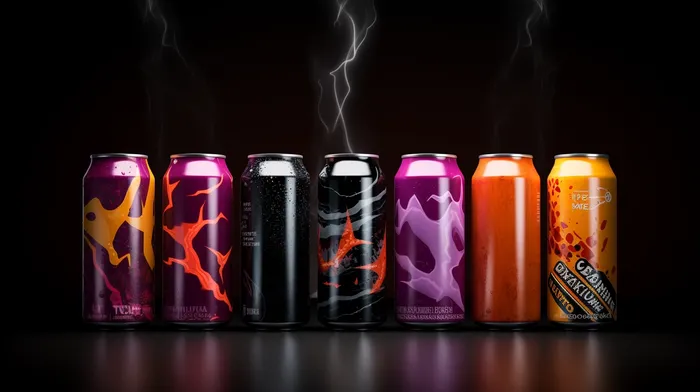Do you find yourself reaching for energy drinks more often than you’d like to admit? Well, it’s time to put down that can! A staggering 50 percent of teens consume energy and sports drinks, and this habit can cause irreversible damage to your teeth. Keep reading to learn more about the dental dangers of these popular beverages and how to maintain a healthy smile without them.
Energy Drinks Erode Tooth Enamel
The main culprit behind the damaging effects of energy drinks is their acidity. In a recent study, scientists immersed tooth enamel in various sports and energy drinks to mimic the reaction that takes place in your mouth when you indulge in one of these beverages. The results revealed a significant erosion of the tooth enamel – the hard, outer layer of the tooth that protects it from decay.
Even more worrying is that most consumers overlook this danger. “Young adults consume these drinks assuming that they will improve their sports performance and energy levels and that they are ‘better’ for them than soda,” says Poonam Jain, B.D.S., M.S., M.P.H., lead author of the study. “Most of these patients are shocked to learn that these drinks are essentially bathing their teeth with acid.”
The Worst Offenders
While all energy and sports drinks pose a threat, some are more harmful than others. One study found that the most enamel erosion occurred from drinking lemon-laden drinks. On the other hand, a handful of sports drinks were found to cause only minimal damage to tooth enamel. However, these less harmful options should not be considered safe, as they still contribute to wear and tear on your teeth.
Soda vs. Sports Drinks
So, are energy and sports drinks really worse for your teeth than soda? The answer is both yes and no. It turns out that sodas, especially cola drinks, are also highly acidic and can cause enamel erosion. Interestingly, diet soda seems to be even worse for your teeth than regular soda, likely due to the additional acids used in artificial sweeteners.
In short, neither soda nor sports drinks are particularly healthy choices for your teeth. But given the additional ingredients in energy drinks, like high levels of sugar and other chemicals, they may elevate the risk of tooth damage even more. For this reason, it’s important to reduce your intake of both types of beverages if you want to maintain optimal dental health.
Protecting Your Teeth
Now that you know the dangers, here are some tips to protect your teeth from the erosive effects of energy drinks:
- Drink in moderation: Limit your consumption of energy and sports drinks to avoid constantly exposing your teeth to their harmful acidity. This also applies to soda consumption.
-
Swish with water: After consuming an energy or sports drink, swish your mouth with water to help dilute the acid and remove it from your teeth. But don’t brush right away, as this may contribute to the abrasive damage.
-
Chew sugar-free gum: Chewing gum can stimulate saliva production, which neutralizes acid and helps to protect your teeth. Just make sure it’s sugar-free, as sugar can also cause tooth decay.
-
Regular dental check-ups: Make sure to visit your dentist regularly for cleanings and check-ups. They can detect early signs of enamel erosion and suggest preventive measures to protect your teeth.
-
Maintain good oral hygiene: Brush your teeth twice a day, floss daily, and use a fluoride toothpaste to keep your teeth and gums healthy.
Healthier Alternatives
With all this said, it’s important to remember that there are plenty of healthier alternatives to energy and sports drinks. For an energy boost, try drinking a cup of green or black tea, which provides a natural source of caffeine without the harmful acids and sugars found in energy drinks. For hydration during workouts, stick with water as your go-to option, or try coconut water, which has naturally occurring electrolytes to help replenish those lost during exercise.
In conclusion, energy drinks pose a real threat to your dental health by causing irreversible erosion of tooth enamel. By reducing your intake of these beverages and incorporating the protective measures mentioned above, you can safeguard your teeth and maintain a healthier, more radiant smile.



